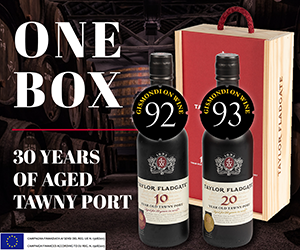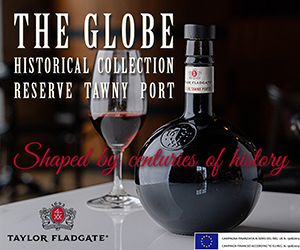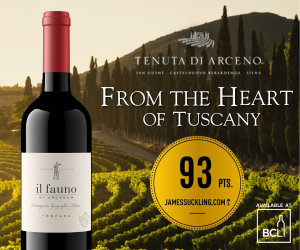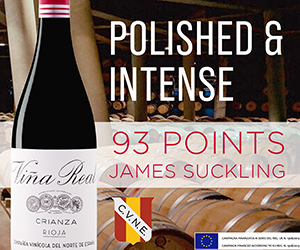The pairing of New World and Old World wineries is, historically, the most talked about joint ventures in the wine business.
The theory being each side can contribute something different to the mix.
On a basic level, that usually means fruit and freshness from the New World producer and complexity and style from the Old World.
At first most of the talk is about sharing experiences, understanding the terroir, choosing the grapes and making the wine, but inevitably it comes down to distribution and marketing.
Big names, big wines, big prices and cookie-cutter flavours describe most of the category, but it doesn't mean there aren't successes such as Opus (by Mondavi-Rothschild) or Eroica (by Château Ste. Michelle -- Dr. Loosen).
A better category, if you can call it that, might be one in which individually successful producers in Napa or Barossa or Bordeaux, or from wherever, head out to make wine in a foreign land.
Without a partner the creativity that undoubtedly contributes to any serious winery's success is free to flourish -- albeit in a new environment.
That's the case with California based Kendall-Jackson (KJ), whose global wine pursuits have taken chief winemaker Randy Ullom to Chile (Calina), Argentina (Tapiz) and more recently Australia (Yangarra Park).
Ullom set up KJ's vineyards and wineries in each country and remains fully committed to their development in the coming years. Today we focus on the wines of Calina from Chile and Yangarra Park from Australia.
Yangarra Park's entry labels are made primarily from fruit grown in Southeast Australia. The concept is to blend some 30 per cent of fruit coming out of prime appellations such as McLaren Vale, Adelaide Hills, Limestone Coast, Eden Valley and Coonawarra with the remainder from the vast Murray River region. Not unlike KJ's California formula of blending cool, coastal fruit with warmer, inland, more tropical Lodi fruit.
Kendall-Jackson has recently completed the purchase of Eringa Park, a 425-acre ranch in McLaren Vale, and by early next year Yangarra will introduce a tier of reserve wines focused on Australia's best varietals from its best appellations.
In Chile, KJ's first wine was the 1993 Calina Cabernet Sauvignon. Estate vineyards were acquired beginning in 1997 and by 2000 a state-of-the-art winery was opened near Talca in the Maule Valley.
Calina now has vineyard holdings of close to 1,800 acres, pulling cabernet sauvignon from the Colchagua valley, merlot and carmenère from the Maule Valley and a chardonnay from the Casablanca Valley.
All of today's picks feature new lower prices as indicated in the summary box (down $2) effective Nov. 24.
2001 Yangarra Park Chardonnay has a bright mineral, pear/apple nose streaked with melon and restrained buttery notes. It's round and soft with more melon, peach and lees in the flavour, with just a touch of baked apple and citrus in the finish. Quite a forward, soft style for current drinking. Fine for holiday entertaining.
From Chile the 2000 Calina Chardonnay has a "reserve" designation although it has no legal definition. The fruit is blended from two relatively cool- climate appellations: Casablanca and Limari. That explains the wine's citrus and mineral aroma. On the palate the flavours are a mix of nuts and butter and apple/pear. The finish is soft, creamy and slightly sweet. Drink now.
2001 Yangarra Park Shiraz has fine varietal character showing the characteristic peppery, spicy, sweaty leather notes mixed with prunes, plum and sausage aromas. It, too, is soft, round and juicy with cherry, plum jam, spicy vanilla flavours and a cola, peppery finish. Perfect by-the-glass, in restaurants, or serve liberally at home.
Still with Australia, the 2001 Yangarra Park Cabernet Sauvignon has more pencil lead, cassis and green olive notes in the nose flecked with spice. The structure is tight and flavours somewhat dry, with more cassis and green-olive notes. Young and slightly tannic at this stage. Be sure to try with grilled meats or age another year in bottle.
The 1999 Calina Cabernet Sauvignon has a much more open demeanour on the nose, showing spice and pepper and bright-dark fruit aromas. The flavours are a mix of floral, peppery fruit with a dry, earthy finish. Again, serve with grilled meats or hard cheese to temper the tannins or wait another year.
Finally, the Calina 2000 Merlot Reserve exhibits the classic leather cherry and green-tea nose with spicy-minty undertones. On the palate it's much softer and rounder than you might think, with plummy fruit flavours and a touch of leather and earth in the finish. Fresh and ready to drink.
YANGARRA PARK (KENDALL-JACKSON AUSTRALIA)
CALINA (KENDALL-JACKSON CHILE)
Producer: Yangarra Park 2001 Chardonnay, southeastern Australia
Price: $16.95
UPC: 784938000645
Score: 16/20
Comments: Delicious citrus and mineral flavours.
Producer: Calina 2000 Reserve Chardonnay, Valle del Maule, Chile
Price: $16.95
UPC: 710886000062
Score: 14.5/20
Comments: Cool, soft and ripe melon fruit.
Producer: Yangarra Park 2001 Shiraz, southeastern Australia
Price: $17.95
UPC: 784938000638
Score: 15.5/20
Comments: Classic styling: leather, fruit and spice.
Producer: Yangarra Park 2001 Cabernet Sauvignon, southeastern Australia
Price: $17.95
UPC: 784938000652
Score: 15.5/20
Comments: Tea and cassis.
Producer: Calina 1999 Reserve Cabernet Sauvignon, Colchagua Valley, Chile
Price: $16.95
UPC: 710886000055
Score: 15/20
Comments: Dry floral, spicy fruit.
Producer: Calina 2000 Reserve Merlot, Valle del Maule, Chile
Price: $16.95
UPC: 710886001700
Score: 15/20
Comments: Mint, plums and ready to drink.

 quicksearch
quicksearch





